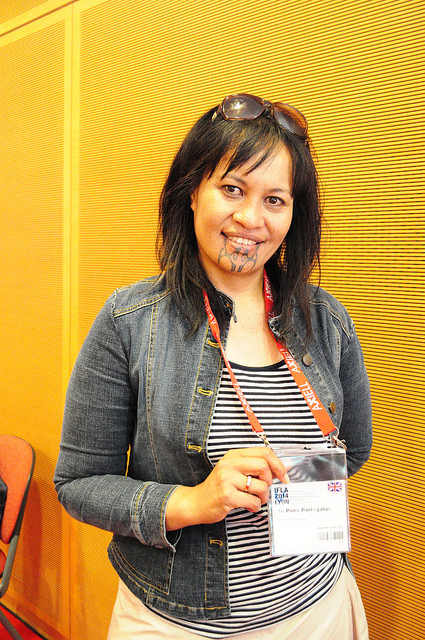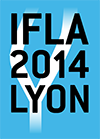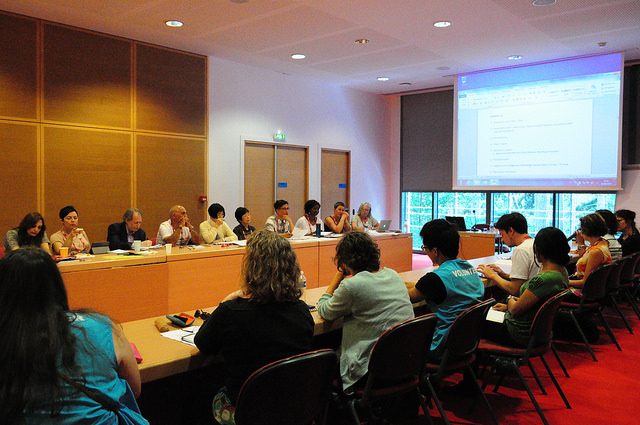
80th IFLA General Conference and Assembly
16-22 August 2014, Lyon, France
17 August 2014
Libraries and multiculturalism
Deutsch | Español | العربية | 简体中文 | Русский | français
IFLA to launch toolkit to promote cultural diversity
Operating in increasingly heterogeneous societies, libraries need to address cultural and linguistic diversity. How do libraries develop services designed to meet the needs of multicultural populations? In an attempt to address this issue, the Library Services to Multicultural Populations Section is launching on Tuesday a toolkit aimed at helping libraries to promote multicultural activities.
The project spanned five years and the Section is hoping that, thanks to the wide and varied experiences upon which the toolkit was drawn, it will prove inspiring to fellow librarians. The toolkit, which will be available online, will contain guidelines, examples of best practices, and exercises to help librarians engage community members and professionals in workshops. For the Section, the next step forward is to actively promote use of the toolkit, but also cultural diversity in the profession itself. The project echoes trend number four of the IFLA trend report according to which wide-reaching digital resources will empower diaspora and migrant communities.
The toolkit (available in English) will be officially unveiled on Tuesday at Session 130.
 Meet the convenor: Te Paea Paringatai
Meet the convenor: Te Paea Paringatai
Te Paea is “very french” about her advocacy for indigenous knowledge. “I'm very passionate about it” the president at Te Rōpū Whakahau (an association representing Maori librarians and information professionals) says. She has been a member of the Library Services for Multicultural Populations Standard Committee since 2013. Te Paea is also the Convenor of the Indigenous Matters Special Interest Group, which hopes to one day become a full-fledged IFLA Section, though she says it's a lot of work to achieve this. But, Te Paea says, “IFLA is very helpful in providing information and documentation to explain the process.”
Last update: 18 August 2014



